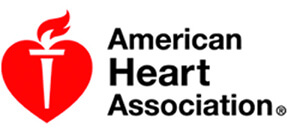How to Interpret Stress Test Results
- Posted on: Mar 23 2023
A stress test is a test that can determine the risk of heart disease as well as existing heart conditions. For most people, the test is done by walking at a steady pace on a treadmill or riding a stationary bike while electrodes attached to your chest monitor your heart’s electrical rhythms.
The results can tell a doctor a lot about your heart’s condition, including blood flow levels, blood pressure, and more.
When do you need a stress test?
Your doctor will usually recommend a stress test if you have symptoms of heart disease and other health factors. These can include:
- Chest pain
- Shortness of breath
- Heavy heartbeats
- Irregular heartbeats
- Diabetes
- A recent heart attack
- A recent heart procedure
- Fluttering heartbeat while exercising
This test will help your doctor determine whether there is a problem with your heart. It will also let them know if one or more of the arteries that send blood to your heart contain fatty deposits.
What can a stress test reveal?
One of the things a stress test can do is help determine whether you are developing coronary heart disease. Coronary heart disease is when the arteries that bring blood to your heart start building up plaque, which hardens and restricts blood flow. It can lead to a stroke or heart attack, especially if untreated.
A stress test can also show if there are any arterial blockages. It can do this by monitoring your blood oxygen levels. If your blood oxygen levels are below normal, it can point to blockages. If the levels are low even when resting, the blockages are significant.
A stress test can also track whether congestive heart failure is getting worse, and it can also show how your heart is doing if you have suffered a heart attack.
If your pulse and blood pressure rise a lot during the test, this can tell your doctor that there is a restriction of blood flow to your heart, forcing it to overwork.
Interpreting Stress Test Results
If you receive a normal stress test result, which will be negative, you probably don’t have significant coronary artery disease. You could still have reduced blood flow to your heart when you exercise because there may be a blockage in the arteries. You could also still be at risk of a heart attack if a small blockage bursts and forms a clot.
Even with a normal or negative test result, your doctor may want to do further tests, especially if you have other risk factors.
An abnormal or positive test result means there is 50% or more blockage in your arteries. It tells you there is a reduction in blood flow to your heart, which is serious.
Before deciding on the best treatment options, your doctor will want to perform further tests to ensure the stress test is not a false positive. Other causes of abnormal stress test results include scarring from previous heart attacks, poor physical fitness, and a heart treatment that is not working well.
If you could not complete the test because of exhaustion before reaching maximum heart rate, the test will be inconclusive.
Schedule an Appointment with Our Heart Experts
If you have symptoms of heart disease, it is time to reach out to experts for help. At Cardiovascular Wellness in Hicksville and Lake Success, NY, we provide the cardiology diagnostics and treatments you can trust. We will assess your concerns and schedule a stress test — if necessary — to find the causes of your symptoms.
Trust your heart to experts who will listen to you and treat the entire person, not just the disease. Call us today.
Posted in: Stress Tests






